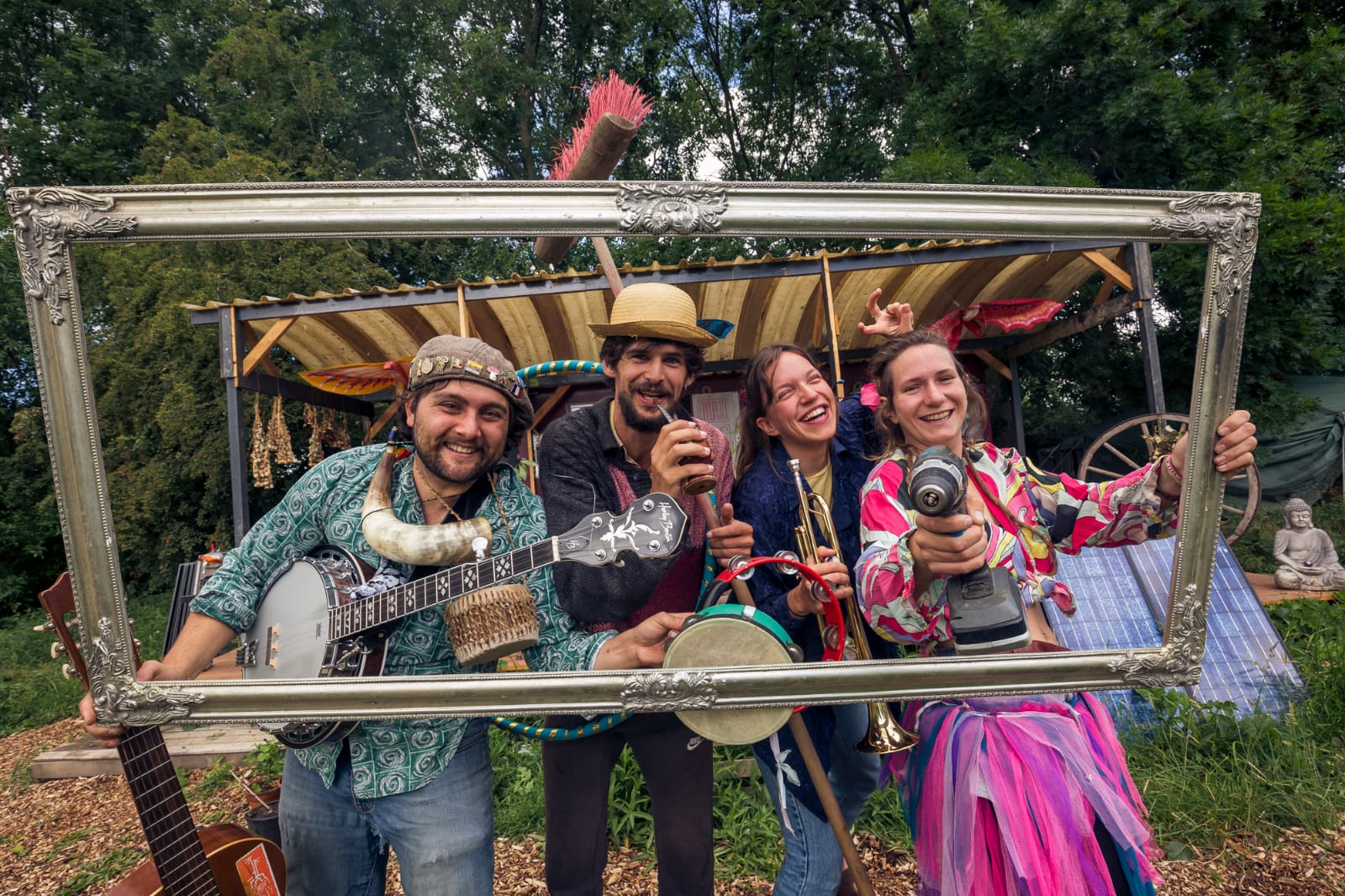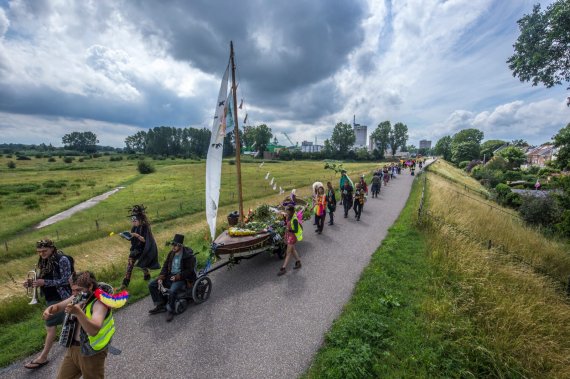©Jacob Kaptein
The area served as an eco-village and cultural safe space since September last year. The area was inhabited by ‘usually four’ people, mainly WUR students, living in tents, busses and carriages. But the zoning plan prohibits overnight stays. Although the municipality appeared to tolerate Groenlandje, the neighbours (rowing association Argo and water sports association Vada), submitted an enforcement request, so, the residents are now leaving.
‘It’s a pity, but understandable,’ says Pablo Vanneste, one of the residents. ‘We called today’s parade a funeral in jest because the boat passes away from the harbour. We may bid this place farewell, but we also look on the bright side: off to a new project.’
Applied sustainability
‘We hope to find a new spot in Wageningen’, fellow resident Louise Vercruysse adds. We feel there is a need for a cultural incubator that includes nature education. It is difficult for students to organise things in Wageningen, especially multi-day events. There aren’t really any suitable locations, and existing venues are often very pricey. Students feel a great need for meeting places. Some people enjoy meeting at student associations, but others prefer to invest in cultural experiments.’

Pablo, Jacob, Louise and Yanina.
‘At the university, we learn about sustainability, but this is mostly theoretical’, Yanina Willet states. She also lived at Groenlandje. ‘A place such as this eco-village offers you the opportunity to put it to practice. What are sustainable building materials? How does one compost humanure (human manure, Ed.)? For many students, seeing these aspects of sustainability applied in real life, rather than just described in academic publications, is inspirational. For example, on Groenlandje, we built a hut out of willow branches, we cultivated shiitakes, an edible mushroom. Sadly, many of our plans for larger groups were discontinued due to the corona outbreak.’
Policy frameworks
The parade led all the way to the town hall, where alderman Anne Janssen (residential areas, spatial planning and culture) awaited the participants. She will enter into a dialogue with the inhabitants and other interested parties such as Tinyhouse Wageningen, to see if there are options for an alternative location. ‘We are quite proud of everything we have achieved,’ says Pablo. ‘The next step is establishing policy frameworks since the goals of Tinyhouse Wageningen, the eco-village and the cultural incubator all differ slightly. But we believe we can make it together.’
The alderman promised to work on this issue, as she sees the added value such a place could have for Wageningen. The residents have found temporary shelter at eco-village Ppauw on the Wageningse Berg. There, they will work on their plans.

